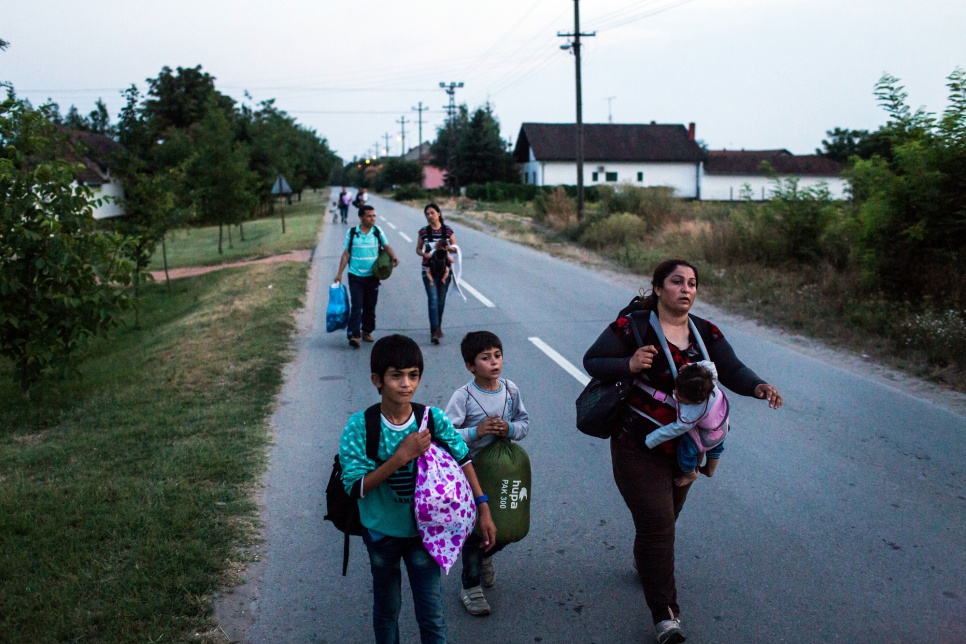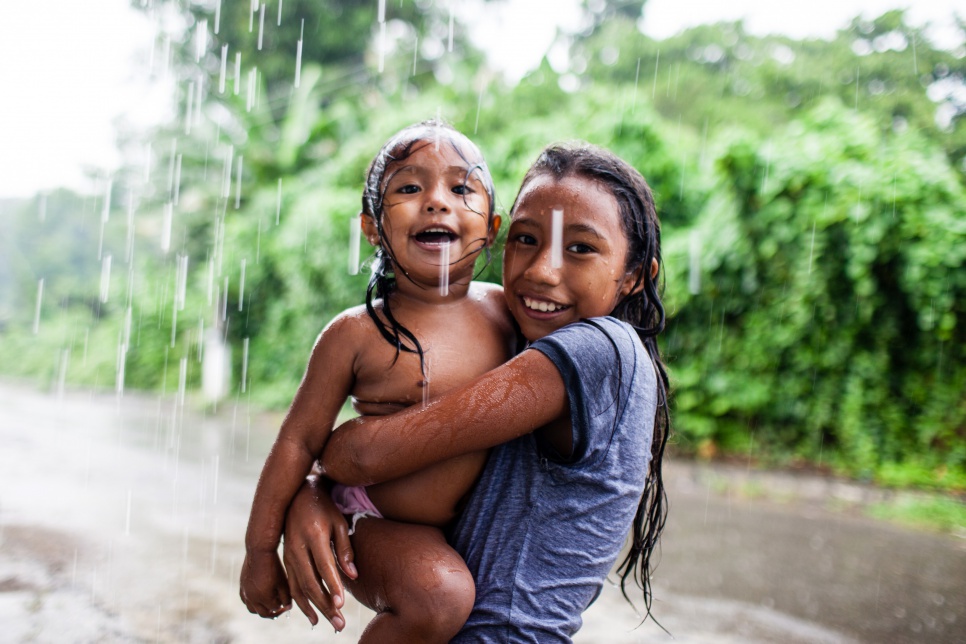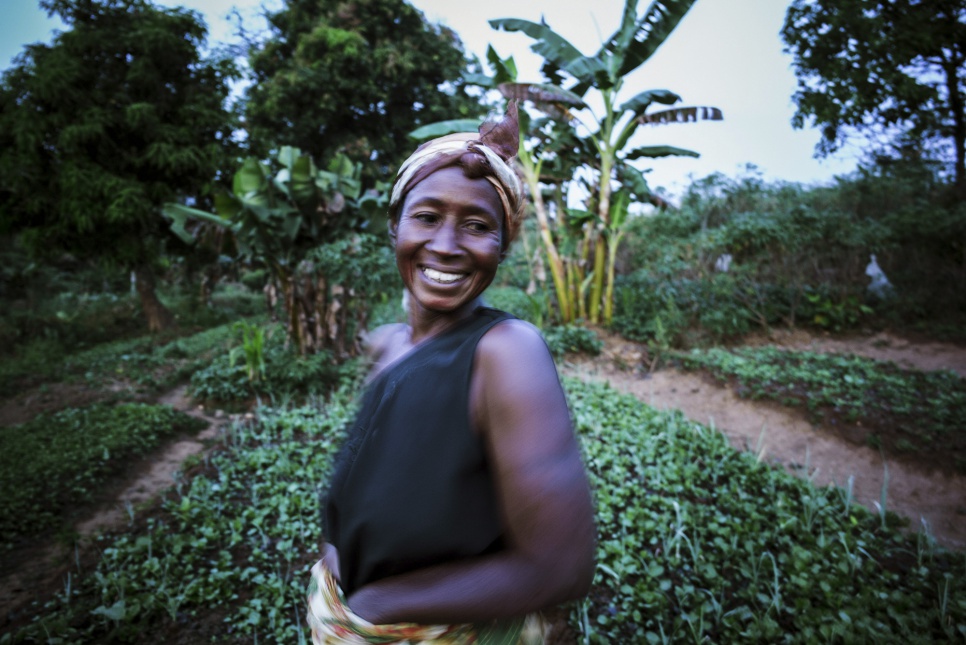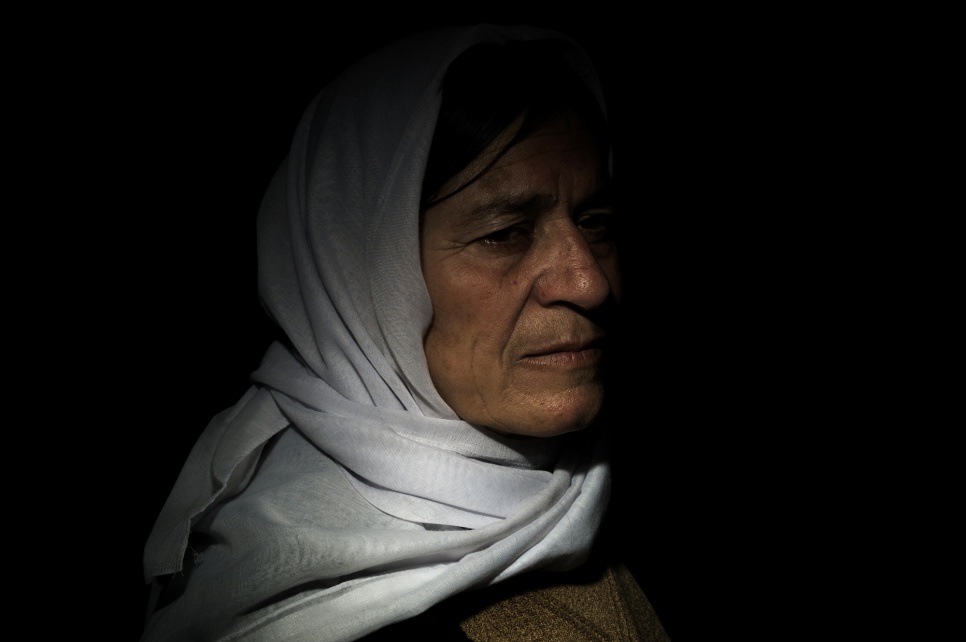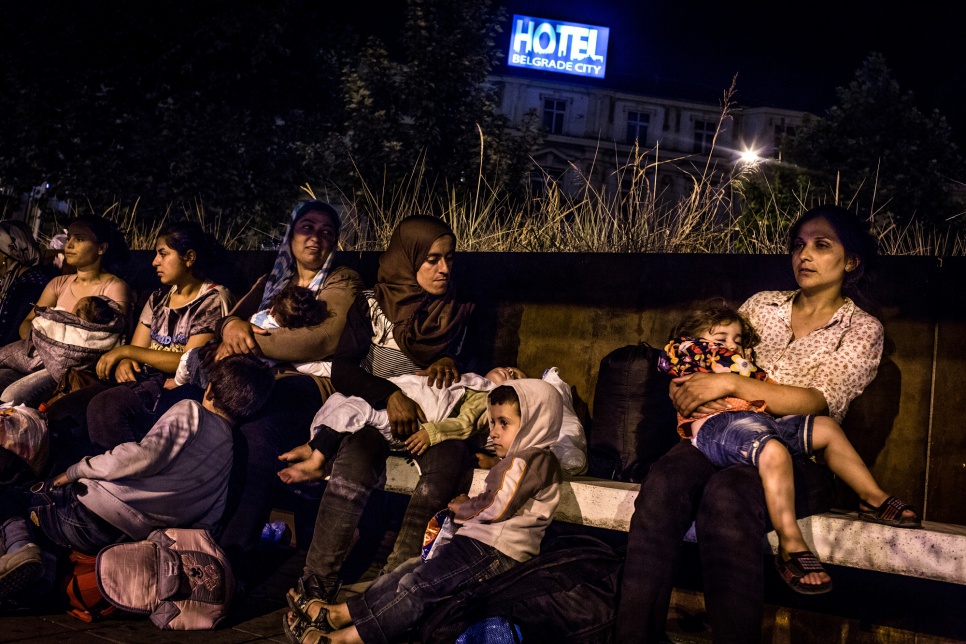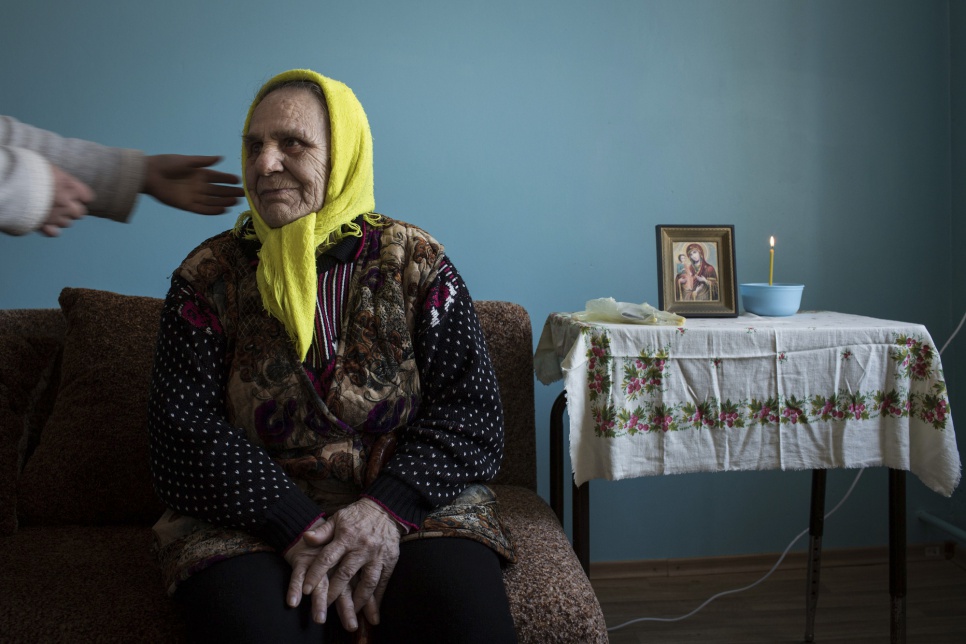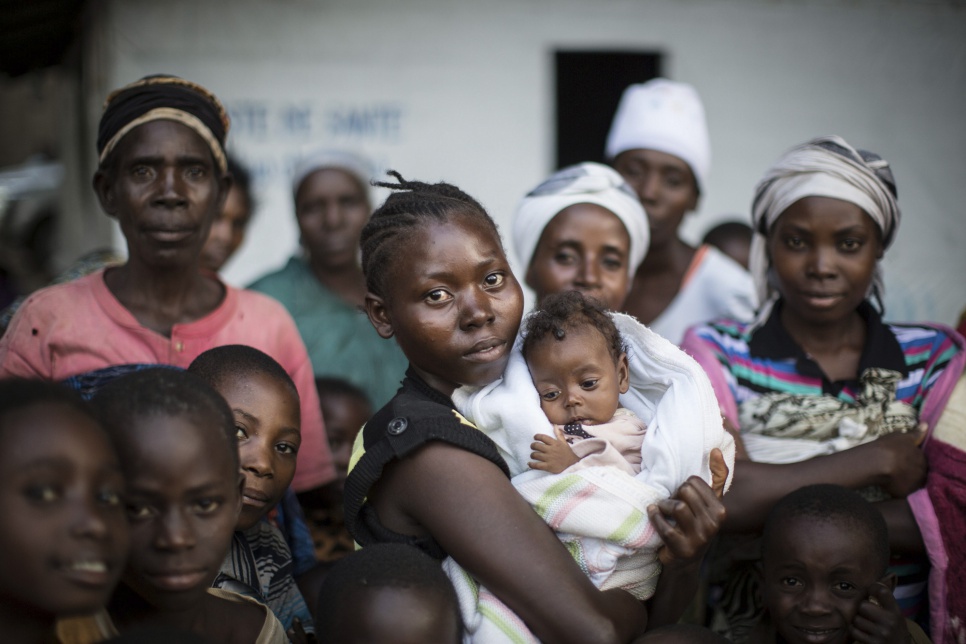By: UNHCR Staff | 7 March 2016
The theme of International Women’s Day this year is #PledgeForParity – seeking to narrow the gender gap in areas ranging from leadership to pay.
Women and girls uprooted by war and unrest face substantial challenges on a daily basis. On top of being forced to flee their homes, many must forego education to care for younger siblings leaving them less equipped than their male counterparts to make a living. Young women and girls are also more likely to become victims of sexual violence.
Despite these obstacles, many displaced women manage to push through barriers and achieve their goals. UNHCR, the UN Refugee Agency, pays tribute in this photo essay to their strength and resilience.
-
Racheal Athieng, 20, was forced to flee her home in Twic East, South Sudan. She settled in Mingkaman and now teaches a class of fellow Internally Displaced People (IDP) at the newly-built school. "Women teachers have the advantage that they identify the slow-learners and encourage them," she says. "Men don't do that as much. Women are more caring, not as harsh as the men."
Her parents supported her all the way to the end of her education, something that she says is rare. "After a certain age, many parents see their girls only as people to do domestic chores, then to be married to bring the financial benefits of a dowry to their parents," she says. "It is a shame." © UNHCR/Andrew McConnell
-
In the Philippines a woman processes seaweed before placing it on a solar dryer in Leha-Leha village. Formerly displaced, she is taking part in a UNHCR project that enables people returning to Zamboanga island to take up their traditional livelihoods.
Some 120,000 people, among them Muslim tribes like the Tausug and Sama Dilaut, were driven from their homes after clashes broke out between armed groups and government forces in Zamboanga in September 2013. © UNHCR/Kent Truog
-
Budoor, 15, from Syria sketches the night sky in Azraq refugee camp in Jordan. In exile, she has discovered a love of the stars as, without electricity in the camp, they appear so clearly at night. She dreams of studying astronomy.
Her family fled their home in Syria after violence engulfed their neighbourhood. They tried to make a life closer to the border with Jordan, but were driven to flee again after barrel bombs hit their home. © UNHCR/Tanya Habjouqa
-
Gauri, 30, prepares food at her temporary shelter in Nepal which she built using a UNHCR tarpaulin after her family home was destroyed by an earthquake in 2015. She and her husband are hosting another five families who live in an area they use to raise chickens. © UNHCR/Diego Ibarra Sánchez
-
Budiaki, 32, helps a student to connect with family online during one of the basic computer skills training sessions that she runs at a Women's Centre for urban refugees in Nouakchott, Mauritania.
Originally from the Democratic Republic of the Congo, Budiaki has been displaced by conflict multiple times in her life.
"I was at school when [a group of armed men] came," she recalls. "I rushed back home to my uncle's place, only to find out that the house had already been taken by the soldiers."
Today, she is a qualified trainer who runs classes three times a week and acts a representative for refugee women living in Nouakchott.
"I know what it feels like when you don't know where your relatives are, and how important it is to communicate with them," she explains. "That's why I chose to be an information technology trainer and help more people find their families."
© UNHCR/Agron Dragaj
-
In Horgos, Serbia, Syrian Kurdish mother Sarhad leads her children on a long trek in search of safety. During the summer of 2015, they were among hundreds of thousands of vulnerable refugee families who traveled through the Balkans in an attempt to reach western Europe.
Women and children currently account for two thirds of those crossing from Turkey to Greece. In February 2016, they made up nearly 60 per cent of sea arrivals, compared to 27 per cent in September 2015.
© UNHCR/Andrew McConnell
-
Ten-year-old Jessica and her sister Sara - not their real names - enjoy being children again, playing in the rain outside their house in Chiapas, Mexico. Their family escaped gang violence in El Salvador and hope to start over in Mexico, where they have been recognized as refugees. © UNHCR/Markel Redondo
-
Philomène was once a school director in the Central African Republic. After escaping militia attacks she fled to Cameroon, where she now makes a living by growing vegetables in a field from 5 am everyday. © UNHCR/Olivier Laban-Mattei
-
An unnamed Yazidi woman bides her time in Khanke camp near Dohuk in the Kurdistan region of Iraq (KRI). She endured a painful wait as her family members were held captive by rebels. © UNHCR/Dominic Nahr
-
A group of Kurdish refugee mothers arrive in Belgrade, Serbia, and pause for a moment to find their bearings. They are among hundreds of vulnerable refugees who passed through the Balkans every day during the summer of 2015 to find safety in Europe. © UNHCR/Andrew McConnell
-
Maria Sakha, 73, lives in a local community centre that serves as a home for the elderly in Myrne, Ukraine. Maria is blind. She sought safety there in September 2014 after her house was destroyed by a bomb. "It is a life of boom boom boom," she says. "It is intolerable. We are shaken all night. Everybody is afraid." © UNHCR/Andrew McConnell
-
A woman cradles her child in Kavimvira transit centre in the Democratic Republic of the Congo's South Kivu Province. She is among hundreds of vulnerable Burundian refugees actively seeking safety there. © UNHCR/Federico Scoppa

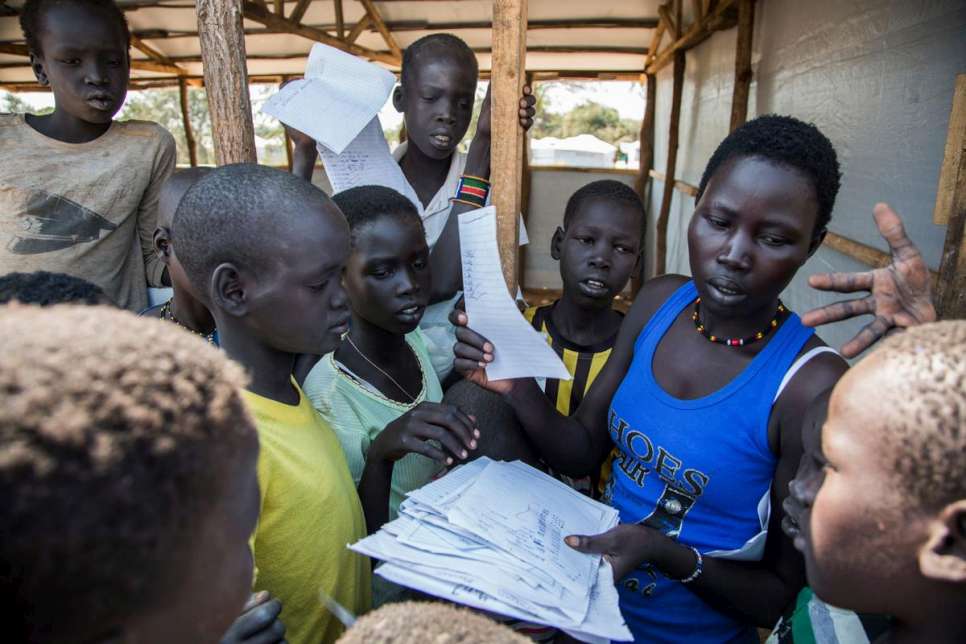
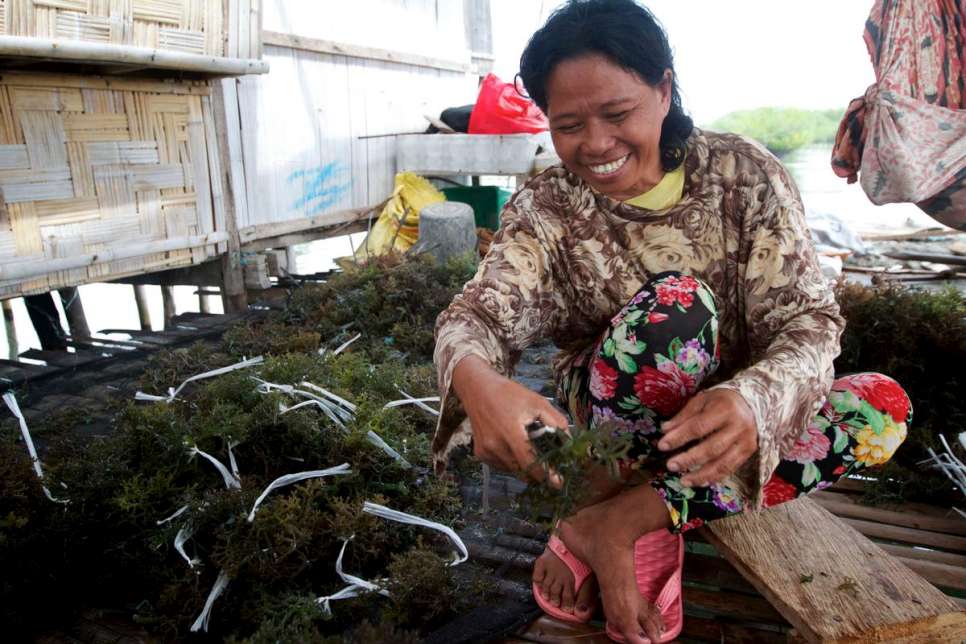
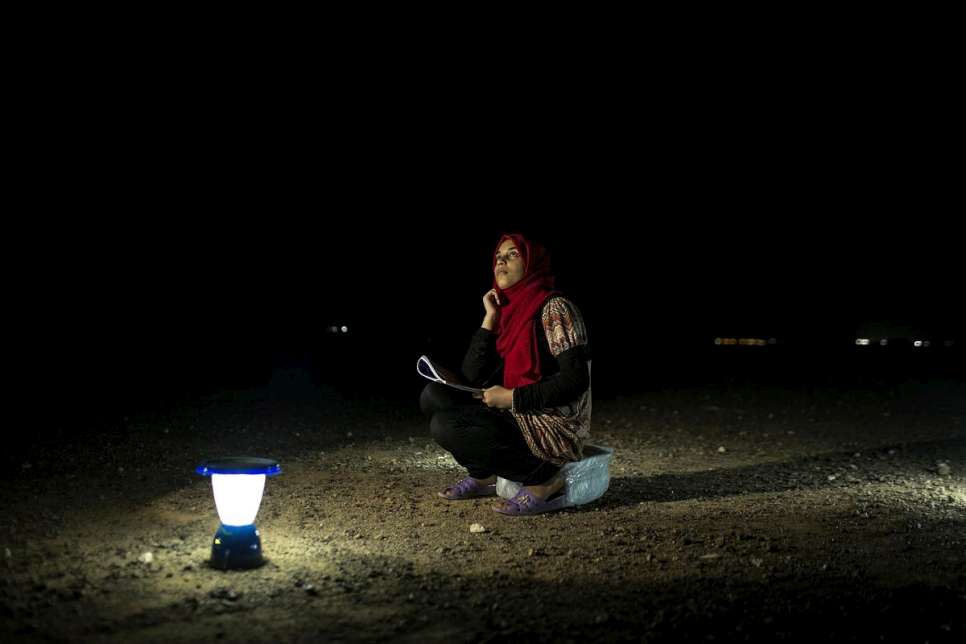
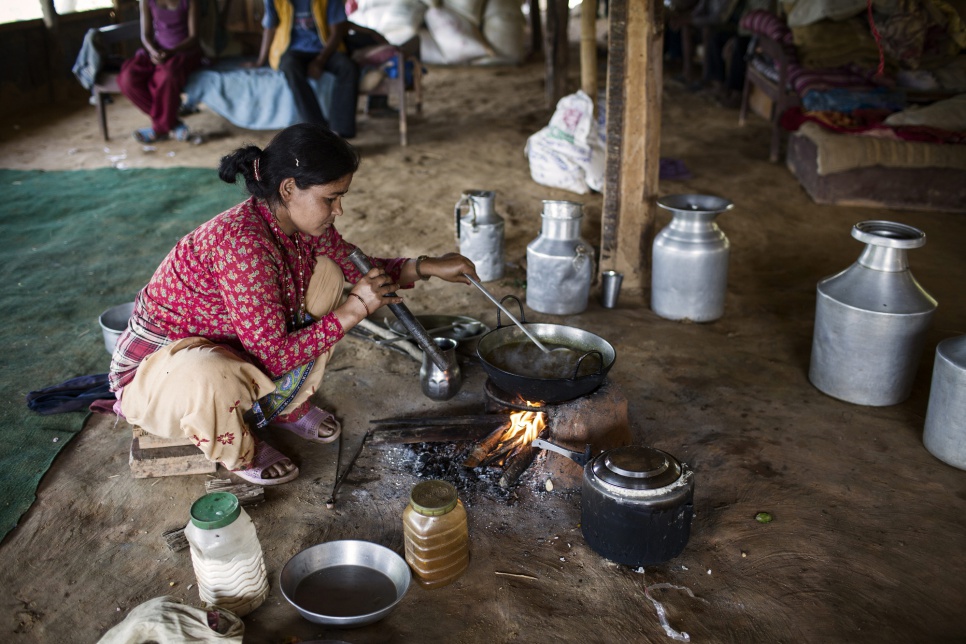
![Budiaki, 32, helps a student to connect with family online during one of the basic computer skills training sessions that she runs at a Women's Centre for urban refugees in Nouakchott, Mauritania.
Originally from the Democratic Republic of the Congo, Budiaki has been displaced by conflict multiple times in her life.
"I was at school when [a group of armed men] came," she recalls. "I rushed back home to my uncle's place, only to find out that the house had already been taken by the soldiers."
Today, she is a qualified trainer who runs classes three times a week and acts a representative for refugee women living in Nouakchott.
"I know what it feels like when you don't know where your relatives are, and how important it is to communicate with them," she explains. "That's why I chose to be an information technology trainer and help more people find their families."](/20160620191819im_/http://www.unhcr.org/thumb1/56ddbb2f6.jpg)
